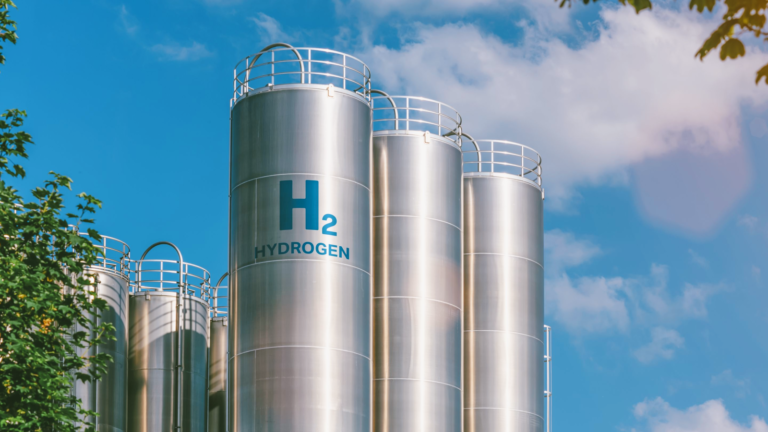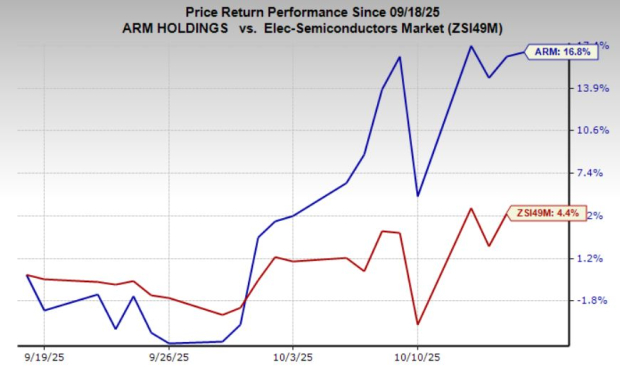Hydrogen fuel cell stocks are currently taking a beating, with the Global X Hydrogen ETF (NASDAQ: HYDR), plummeting by 20% year-to-date. The allure of renewable energy is waning as non-renewable energy sources become more competitive post-2022. The prevailing high-interest rates are also steering investors away from capital-intensive sectors, casting a shadow on hydrogen stocks.
However, this short-term slump does not reflect the enduring benefits and long-term growth potential of renewable energy, with favorable incentives like the Inflation Reduction Act of 2022 backing clean energy projects, including hydrogen initiatives. This downturn may, in fact, present a golden upshot for investors eyeing the next big players in the hydrogen fuel cell market.
Exploring Perseverance: Bloom Energy (BE)
Bloom Energy (NYSE: BE) stands tall as a trailblazer in the hydrogen domain, propelled by its innovative solid oxide fuel cell technology capable of generating electricity from a range of fuels like natural gas, biogas, and hydrogen. By sidestepping combustion, Bloom’s Energy Server minimizes emissions, offering a dependable power option suited for entities requiring uninterrupted power like businesses and institutions. Moreover, its grid-independent operation proves invaluable during outages and in areas with shaky infrastructure.
Despite facing earnings rollercoasters in 2023, Bloom Energy has piqued the interest of energy heavyweights. In a recent move, oil giant Shell (NYSE: SHEL) inked a deal with Bloom Energy to explore collaboration on hydrogen energy projects, potentially catalyzing the company’s growth amidst prevailing headwinds.
Powering Potential: Plug Power (PLUG)
Plug Power (NASDAQ: PLUG) shines as a premier supplier of liquid hydrogen and a stalwart producer of hydrogen fuel cells for the supply chain and logistics segments. Firms in these sectors are earnestly striving to curb their carbon footprint, with hydrogen fuel cells featuring prominently in their eco-friendly strategies, whether through deploying hydrogen-fueled forklifts, trucks, buses, or drones. Plug Power’s fuel cells underpin this transformative shift.
The company’s shares have endured a 25% dip since the onset of 2024. Amidst revenue growth uncertainties, Plug Power embarked on a cost-cutting exercise, revising its guidance and trimming down on its workforce size. Despite this, Plug Power has successfully forged strategic ties with logistics titans such as Amazon (NASDAQ: AMZN), Walmart (NYSE: WMT), and Airbus (OTCMKTS: EADSY), underscoring its critical role in steering the logistics industry towards cleaner energy alternatives.
Revitalizing Sustainability and Growth in Fuel Cell Industry
Plug Power Inc. (PLUG)
Plug Power Inc. (NASDAQ:PLUG) is set to implement a cost-saving strategy aiming to exceed $75 million through operational streamlining and optimizing workforce dynamics. These measures, a blend of operational consolidation and workforce realignments, underscore a determined effort by the company to fortify financial resilience and enhance operational efficiencies.
By sharpening the focus on operational cost reductions and conducting a comprehensive strategic evaluation, Plug Power Inc. anticipates an uptick in earnings potential and shareholder returns. The firm’s forward-thinking approach seems poised to navigate the challenges in the competitive fuel cell industry.
Nikola Corporation (NKLA)
Nikola Corporation (NASDAQ:NKLA) stands out as a prominent player in the market, specializing in the production of hydrogen and battery-powered semi-trucks. Despite its illustrious initiation into the stock market in 2020, Nikola has encountered a tumultuous journey marred by controversies, legal entanglements, and regulatory scrutiny.
The company’s reputation took a significant hit back in 2018 when a video featuring the Nikola One semi-truck prototype cruising down a highway turned out to be a staged event, as revealed in a scathing expose by Hindenburg Research. In the aftermath, Nikola’s integrity was severely questioned, prompting a seismic shift in public perception.
Subsequently, Nikola has endured a rollercoaster ride in financial performance. Noteworthy highlights include the delivery of 35 hydrogen fuel cell trucks in the fourth quarter and a successful capital raise netting $230 million in equity funding. Bolstered by a cash infusion that elevated total cash reserves to $465 million by the close of 2023, Nikola appears well-positioned to rev up its research and development initiatives, possibly reclaiming its standing as an innovator in the electric vehicle sector.
As of the publication date, Tyrik Torres did not hold any positions, direct or indirect, in the securities mentioned in this article. The reflections presented herein represent the writer’s personal viewpoints and adhere to the guidelines set by InvestorPlace.com.





